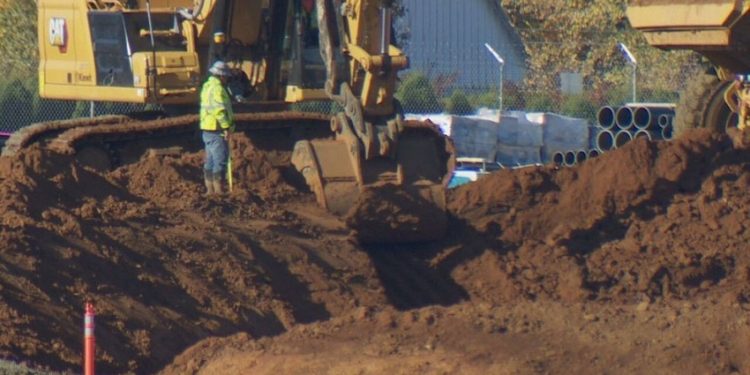Astoria, Ore. – A new piece of legislation making its way through the Oregon state legislature could significantly influence the ongoing land-use battle surrounding the city’s multibillion-dollar water filtration project in Multnomah County. The project, which is intended to improve the city’s water system, has been embroiled in legal challenges after residents raised concerns about its environmental impact.
The water filtration facility, located on land that was once used for farming, was initially approved for conditional use by a Multnomah County hearings officer. However, nearby residents appealed this decision to the state’s Land Use Board of Appeals (LUBA), arguing that the city had not adequately addressed the project’s impact on natural resources in the surrounding area.
LUBA sided with the residents last month, ruling that the city had failed to properly evaluate the project’s environmental consequences. However, the state upheld the county’s ruling on other legal grounds, allowing construction to continue at the site. Despite this, the ruling was a blow to the project’s progress and raised concerns among those fighting the development.
In response, several state lawmakers have sponsored a bill that could potentially bypass some of the land-use restrictions in place for projects like the water filtration site. Senate Bill 936 would allow for the construction of such projects on land designated for other uses, making land-use regulations less relevant in certain cases. To qualify, projects would need approval from relevant state or federal health agencies, such as those overseeing public water systems, like the filtration project.
Supporters of the bill argue that it will help expedite vital infrastructure projects and ensure they meet public health deadlines. A spokesperson for Portland’s Water Bureau explained that the legislation is intended to provide “schedule certainty for water and wastewater projects” that are under federal or state health requirements. The spokesperson emphasized the bill’s potential to improve resilience and emergency response capacity.
However, opponents of the project view the bill as another setback. Ian Courter, a resident who has been vocal in his opposition to the filtration facility, expressed frustration over the new legislation. “When I hear that they have a new piece of legislation coming out, it’s upsetting. It’s upsetting the same way all the other aspects of this project are very upsetting to us,” Courter said. “It’s like we know that this is an unjust thing that’s happening in our community.”
The new bill, if passed, would apply to the Portland water filtration project and other similar initiatives. Critics argue that it could erode local control over land-use decisions, giving more power to state and federal agencies. They fear that such changes will allow projects with significant environmental and community impact to proceed without adequate local oversight.
As the project continues to face legal challenges, the clock is ticking for those opposed to the filtration site. They have 21 days to appeal LUBA’s decision to the Oregon Court of Appeals. If no appeal is filed, the Multnomah County hearings officer will be tasked with addressing the natural resource concerns raised by the state appeals board.
Portland city officials have pledged to maintain transparency and engage with the public during the land-use process. The debate over the water filtration project and the accompanying legislation highlights ongoing tensions between the need for infrastructure development and the protection of local communities and the environment.
The bill’s sponsors have not yet responded to media inquiries about the proposed legislation, but its potential impact on Portland’s water filtration project and other similar initiatives is already being keenly debated.













